Vet News NT: June 2023
The Northern Territory (NT) Vet Board are pleased to advise that the newsletter is back up and running after a short hiatus. This newsletter will run quarterly and keep the NT up-to-date with the most prominent issues and announcements.
After 12 years of continual service as the NT vet registrar we would like to take the time to thank Sue Gillis for her hard work and dedication to the role and wish her all the best for her retirement. Kathleen Gregor will be backfilling the position of the NT vet registrar with permanent recruitment underway.
Welcome new chief vet officer Rob Williams

Dr Rob Williams has taken on the position as chief vet officer (CVO) following his commencement as deputy CVO last September. Rob has a vast amount of international experience after working in various positions in the USA and China and has extensive experience in the red meat industry, including animal health and welfare, nutrition, veterinary medicine, processing and distribution of red meat products.
Before commencing his role in the Northern Territory, Dr Williams was the regional manager for Meat and Livestock Australia in Washington DC for 5 years. He previously worked for the Australian red meat industry organisations on international trade as the technical advisor. His focus was on non-tariff barriers to trade into all countries, especially priority markets including China, the Middle East and Indonesia.
Dr Williams’ current priorities as CVO are to ensure preparedness against emergency animal diseases such as foot-and-mouth disease and lumpy skin disease, understand how to better integrate livestock biosecurity business systems, and reviewing the tick regulatory program.
About the board
The Veterinary Board of the Northern Territory (NT) is a statutory authority established by the Veterinarians Act 1994 representing Territory veterinarians.
The board is responsible for the registration of veterinarians and veterinary specialists and administers the disciplinary provisions of the Act in respect of professional misconduct by registrants and the performance of prohibited practices by non-registered persons.
It has sole legislative responsibility for the regulation of veterinary service in the NT. The statute acts as a means to ensure domestic and international consumer protection and animal welfare, in the delivery of veterinary services in the NT.
Find out more about the Veterinary Board.
Secondary registration and the automatic mutual recognition
This is a timely reminder that as of August 2020, the Australian Government Treasurer announced that the Commonwealth, state and territory governments would introduce a uniform scheme for automatic mutual recognition (AMR) of occupational registrations as part of a broader set of red-tape reduction reforms to assist Australia’s recovery.
As the Northern Territory (NT) Veterinary Board remains the only board within Australia which has not updated legislation to reflect the National Recognition of Veterinary Registration, as of 1 July 2021, all secondary registrants and prospective secondary registrants will no longer be required to register or renew in the NT to work as a veterinarian.
Therefore, a person shall be deemed to be registered as a veterinarian under the Mutual Recognition Act 1992 if that person is registered as a veterinarian under an equivalent Act in any Australian state or territory.
This provision shall only apply in the case of persons holding general and/or specialist registration in another state/territory in Australia. The deemed registration shall be subject to the same conditions, restrictions or limitations (if any) that apply in the primary state or territory of registration.
All legal rights and obligations applying normally to veterinarians under the relevant Act in the state/territory shall apply equally to persons deemed to be registered in accordance with the above.
A person must apply for primary registration in the state or territory of their primary place of residence. If a veterinarian moves their primary place of residence to another state or territory they shall advise the board in the new state or territory within one month of relocation.
Emergency animal disease update
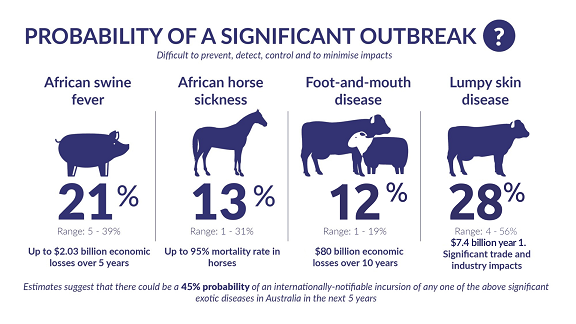
Author: Kathy Moylan, Veterinary Officer, Alice Springs
Some of you will have been involved in the TREAD 3 exercise held in March 2023. This was a functional exercise to practice the Territory’s response to an incursion of foot-and-mouth disease (FMD). Enacting an emergency biosecurity plan involves many more people than the Livestock Biosecurity section of government, bringing in other government departments and outside agencies in the private sector (e.g. private veterinary practitioners), all with their particular skill sets.
One of the first challenges was that the preferred location for the emergency operation centre was unavailable due to another (actual) emergency. The second best option had limited information and communications technology equipment, which made for a crowded and noisy space. Just one of the potential challenges in the real world.
Australia has a world class biosecurity system as evidenced by the discovery of 38 tonnes of illegal meat and plants in February. Inside the investigation into the discovery of 38 tonnes of illegal meat, plants in Australia - ABC News makes for interesting reading, and includes links to the Johnny Depp incident and the garlic ‘office supplies’ bulbs.
To maintain this level of biosecurity we need to remain aware (amongst other actions) and so when FMD and lumpy skin disease (LSD), were diagnosed in one of our closest neighbours, Indonesia, our responses have been commensurate with the risk.
Australia stepped up support across a broad base involving governments and industries, not only in Indonesia but also with our closer neighbours of Timor-Leste and Paua New Guinea. By helping our close neighbours we offer everyone protection against the spread and economic fallout of these diseases. In country training for epidemiological work, improving technical expertise including logistical support and diagnostics, will assist these countries in combatting livestock diseases.
As Indonesia has declared FMD endemic, Australia continues supporting Indonesia in their response to the ongoing FMD and LSD outbreaks with vaccine supply, vaccinator training programs and the development of long term communication strategies between the government, farmers and other stakeholders including the public. Disease testing capabilities across the country will be strengthened to improve capability.
Though currently all eyes seem to be on FMD and LSD, it is important to remember that African swine fever (ASF) is still on our radar. This disease continues to have reported outbreaks in South-East Asian countries including Indonesia, while probably being endemic across most of the countries. A major challenge with ASF is the longevity of the virus in various situations; live and dead pigs, contaminated fomites such as clothes, shoes, and vehicles, and the feed, and soil. Decontamination prior to entry back to Australia is paramount when returning from any country in this region.
And remember if you notice any clinical signs that could be attributed to an emergency animal disease, or seems unusual, call the Emergency Animal Disease hotline on 1800 675 888.
Changes to E. canis testing from 1 July 2023
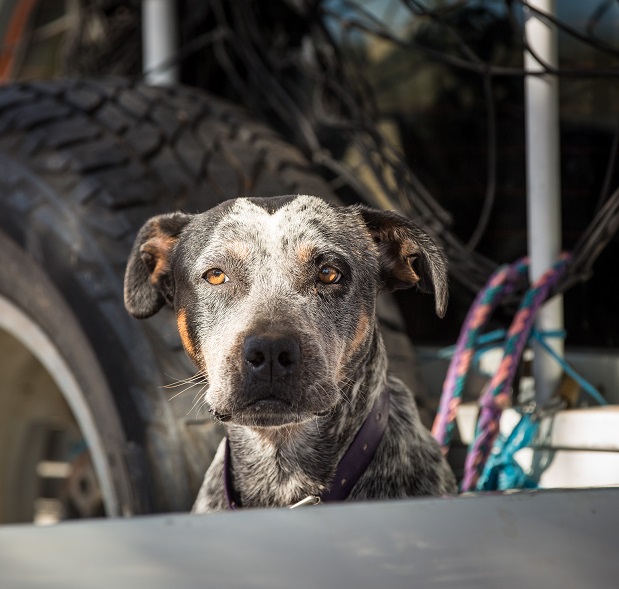
E. canis routine surveillance will come to an end on 1 July. The department will continue to offer testing for E.canis on a fee basis after 1 July.
Fees will include covering the cost of freight and courier fees in addition to diagnostic testing.
Animal health and welfare continues to be our priority and dog owners are reminded to keep vaccinations up-to-date and use tick prevention and control products.
Questions? Get in touch with Berrimah Veterinary Laboratory on 08 8999 2249.
Australian bat lyssavirus reminder
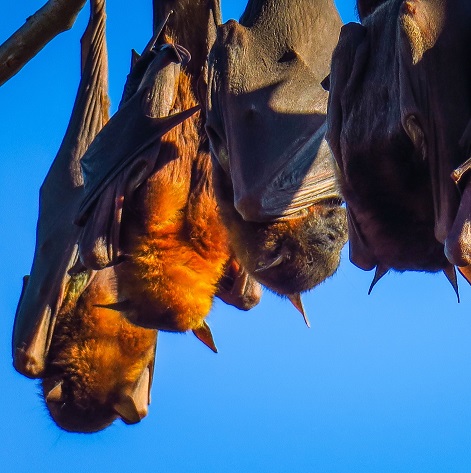
Northern Territory (NT) vets are reminded to make sure they are familiar with the NT Australian bat lyssavirus (ABLV) guidelines for vets PDF (832.7 KB), following a positive case of ABLV in a bat found in Darwin.
The bat displayed neurological signs and was submitted to BVL for post mortem and ABLV was confirmed testing via Australian Centre for Disease Preparedness (formerly AAHL). Should you be aware of an unwell bat and suspect ABLV, please contact the Emergency Animal Disease hotline on 1800 675 888.
Important information
It is no longer a requirement to obtain chief veterinary officer (CVO) permission to obtain the Nobivac vaccine as it can be ordered through Provet Australia directly, however it is still a requirement that animals receiving the Nobivac vaccine are microchipped and owner and animal details, including completed Nobivac vaccination records, are forwarded to the CVO at cvo.ditt@nt.gov.au.
Reduce the risk to you and your staff.
Vets are reminded that pre-exposure prophylaxis with rabies vaccine is recommended for people who may receive bits or scratches from bats - including veterinarians, veterinary nurses and people working with wildlife.
The recommended pre-exposure prophylaxis schedule for rabies virus or other lyssavirus infection comprises 3 vaccine doses, followed by a single booster one year after the first rabies vaccine and then ongoing titre-testing every 3 years. To view the current vaccination recommendations for rabies and other lyssaviruses, go to the Australian Government Department of Health and Aged Care website.
Bat handlers must also have appropriate training, wear personal protective equipment, and handle all bats as though they are carrying ABLV. If you are bitten, scratched or otherwise suspect you are exposed:
- wash the site with soap and water for 5 minutes (do not scrub)
- apply an anti-septic with anti-viral action, such as povidone iodine or alcohol (ethanol) after washing
- if saliva has touched mucous membranes such as eyes, nose, or mouth, flush the area thoroughly with water
- contact your doctor and the Northern Territory Public Health Unit Disease Control immediately on 1800 008 002.
For more information and client handouts, go to the Northern Territory Government website.
Japanese encephalitis
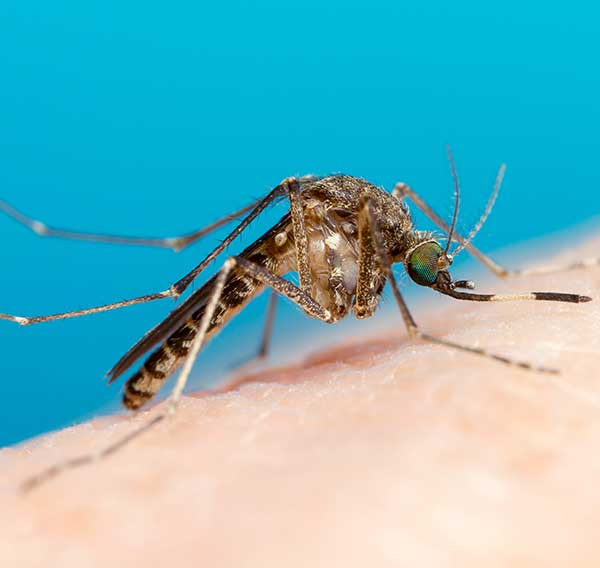
Photo credit: Stephen L Doggett
Japanese encephalitis (JE) is caused by the Japanese encephalitis virus (JEV). It is spread through bites from mosquitos, which become infected through biting infected pigs and waterbirds.
JEV is endemic to parts of Asia and the Torres Strait region of Australia. JEV has also been detected in humans, animals and mosquitos in the Northern Territory (NT).
Infection in humans is most commonly asymptomatic, but on rare occasions it can result in severe disease and even death. Animals can be infected with JEV but they cannot transmit the virus to humans.
JE is a disease that can be prevented with a vaccine. There is currently a limited supply of JE vaccines in Australia. If you're a NT resident you may be eligible to receive a free vaccine.
If you're not eligible but are worried about getting JE, talk to your doctor.
Check your eligibility
To be eligible for the free JE vaccine you must be:
- an NT resident
- in a high-risk group.
High-risk groups are identified by either:
- the type of work you do
- the location of where you live or work.
Vaccine suitability
In the NT there is a vaccine for:
- adults
- children
- infants from 2 months of age
- anyone who is pregnant or breastfeeding
- immunocompromised people.
Read more about the JE vaccine on the Australian Government Department of Health and Aged Care website.
Identified high-risk work
You are at risk of JE if you work with mosquitoes or feral pigs through surveillance, control or management.
This can include:
- environmental health officers and workers
- entomologists
- vets
- rangers.
Identified high risk locations:
- select Darwin suburbs
- rural Darwin
- remote communities in the NT
- Tennant Creek.
If your work puts you at risk of JE and you're an NT resident, book your vaccination with your nearest community care centre.
HPAI H5N1 Indonesia
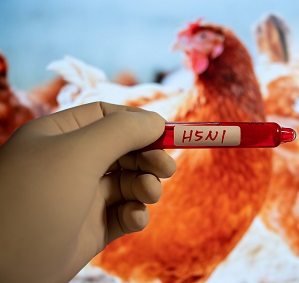
A recent ProMed article highlighted a report by Indonesia to WOAH-WAHIS reporting Influenza A HPAI-H5N1 with a new strain in a zone. Specifically H5N1 was identified in ducks in South Kalimantan, with genome testing confirming that a new clade has been detected. (unsure if this means a new clade for Indonesia or a worldwide new clade). The source of infection is not confirmed but suspected to be from contact with wild birds as the farm was located close to a pond where wild birds have been detected.
As many of you will be aware H5N1 clade 2.3.4.4b has been swirling around Europe and North America over winter. And extended to South America with the mainstream reporting of deaths in sea lions and other marine mammals.
In the period 2003-2015 H5N1 did jump across to the human population with 167 fatalities from 199 cases. Australia contributed to surveillance, vaccination and stamping out activities during this time but Indonesia has often been cited as one of the hotspots for spread of avian influenza. Challenges Indonesia faces include the complexity and size of the poultry industry.
As with all potential disease threats to Australian industry and in this case the zoonotic potential of this virus we all need to stay alert but not alarmed. Investigate those unexplained deaths in a safe manner.
Below are links to articles and websites with useful and interesting information. They are mostly historical which give food for thought for the future. The article from Elisabeth Mahase published in the British Medical Journal highlights the thoughts of the WHO chief scientist.
Eagles D, Siregar ES, Dung DH, Weaver J, Wong F, Daniels P. H5N1 highly pathogenic avian influenza in Southeast Asia. Revue scientifique et technique. 2009 Apr 1;28(1):341.
https://www.fao.org/animal-health/situation-updates/global-aiv-with-zoonotic-potential/en
https://www.fao.org/animal-health/situation-updates/global-aiv-with-zoonotic-potential/bird-species-affected-by-h5nx-hpai/en - also lists affected mammal species.
Mahase E. H5N1: Governments should invest in vaccines for all flu strains, says incoming WHO chief scientist. BMJ 2023:380:p434
https://www.fao.org/indonesia/news/detail-events/en/c/414602/
https://www.fao.org/indonesia/news/detail-events/en/c/1133620/
Emergency animal disease preparedness EOI
The Northern Territory Government is seeking expressions of interest from veterinarians to participate in future emergency animal disease preparedness activities. These activities can include training sessions and incursion response activities.
To register your interest
Estimated completion time: 5 minutes
All steps must be completed in one go. You can't save your application and complete it later.
Dates to remember

Veterinary registration is due by 31 December each year. You can apply online.
Contact us
Veterinary Board registrar
Phone: 08 8999 2028
Fax: 08 8999 2089
First floor John England Building
Berrimah Farm
Makagon Road
Berrimah NT 0828
GPO Box 3000
Darwin NT 0801
Give feedback about this page.
Share this page:
URL copied!